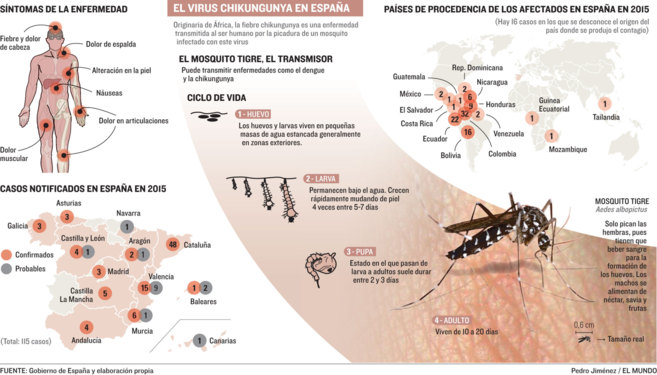A Virus Outbreak in China Worries U.S. Travelers
China is seeing a rise in chikungunya virus cases. This illness spreads through mosquito bites. It’s not new to the world, but now it’s growing fast in Chinese cities. People are getting sick with fever, tiredness, and pain in their joints. While it’s not usually deadly, it can make life very hard for a few weeks—or even longer.
Many Americans visit China every year. This means the virus could travel back home. If someone comes back with the virus and is bitten by a mosquito in the U.S., it can start spreading here too. But don’t panic. If you learn how to avoid mosquito bites and watch for signs of sickness, you can stay safe.
What Is Chikungunya and Why Should You Care?
Chikungunya is a virus that spreads through mosquito bites. The mosquitoes that carry it are the same ones that spread Zika and dengue. The virus causes sudden fever and painful joints. It can also lead to a rash, headaches, and muscle aches. There’s no cure or vaccine for this virus right now.
The United States has not had big outbreaks yet. But that could change. Some areas in the U.S.—like Florida, Texas, and California—have the right kind of mosquitoes. As more people travel, it becomes easier for the virus to spread to new places.
How the Virus Spreads
When a mosquito bites someone with chikungunya, it picks up the virus. That mosquito can then bite someone else and pass on the infection. The virus does not spread directly between people.
Why China’s Outbreak Matters to the U.S.
More Americans are traveling to Asia again. That includes trips for business, family, and school. If a traveler gets bitten in China and brings the virus home, local mosquitoes could spread it. This is how the virus could reach American neighborhoods.
A Growing Risk in Warmer Areas
Hot, wet places are perfect for mosquitoes. That’s why southern states in the U.S. need to pay attention. The climate in parts of the U.S. is already similar to some areas in China. That makes it easier for the virus to take hold.
Signs and Symptoms After Travel
The virus usually causes symptoms within three to seven days. It starts with a fever and leads to strong pain in the joints. You might also feel very tired or get a rash. Some people get better in a week. Others may feel pain for weeks or months.
Doctors in the U.S. are now asking patients about their travel history. If you’ve been to China and feel sick, tell your doctor right away. The faster the virus is found, the better your recovery.
What You Might Feel
Most people with chikungunya feel very sick at first. The fever comes quickly. Your hands, feet, knees, or wrists might ache. You may have trouble moving because of the pain. This is a key sign of the virus.
Problems That Can Linger
Even when the fever goes away, joint pain can stay for a while. This makes it hard to work or sleep. For older people, this pain can last longer and feel worse.
When to Call a Doctor
If you get sick after a trip, don’t wait. Call your doctor and explain where you’ve been. They can check your symptoms and may run a blood test to make sure it’s not something else.
How It Spread So Fast in China
At first, only a few people brought the virus into China. They had traveled from places where the virus was already active. But then local mosquitoes bit these people and spread the virus to others. Cities in China were not prepared, and the virus spread quickly.
Hot weather, busy cities, and bad drainage gave mosquitoes many places to breed. These mosquitoes are now spreading the virus across cities like Guangzhou and Shanghai. Experts believe it could keep spreading if not stopped soon.
From Travelers to Cities
The first cases came from travelers. But once mosquitoes picked up the virus, it spread from city to city. Crowded neighborhoods made it worse. It was hard to control where people and mosquitoes went.
Climate and Construction Helped the Virus
Warm air, heavy rains, and standing water made things worse. New buildings left behind buckets, trash, and puddles. These all helped mosquitoes grow in big numbers.
Could It Reach the U.S.?
Yes. If an infected person comes home and gets bitten by a local mosquito, the virus can spread. That’s why U.S. health groups like the CDC are watching this outbreak closely.
How China and the U.S. Are Responding
China is now spraying for mosquitoes in big cities. They are giving out mosquito repellent and telling people how to stay safe. Hospitals are testing more people and setting up help centers. These are all good steps, but the virus is still spreading.
The U.S. is also taking action. The CDC has warned people about travel to China. Doctors are being trained to spot the virus early. Airports are also giving out health notices.
What China Is Doing
Health workers in China are cleaning up mosquito areas. They are teaching people to empty standing water and cover their skin. Cities are being sprayed to kill mosquitoes.
What the U.S. Is Doing
In the U.S., travel alerts are now in place. Doctors are being told to ask about travel and report any cases. The goal is to stop the virus before it spreads in U.S. cities.
Why Teamwork Matters
Both countries are working together and sharing health info. The World Health Organization is also involved. They’re tracking the virus and helping to stop it from spreading further.
How to Stay Safe from Chikungunya
The best way to avoid chikungunya is to stay away from mosquito bites. That’s true both abroad and at home. If you’re visiting China or a warm, wet area, wear clothes that cover your skin. Use strong mosquito spray. Sleep in rooms with screens or air conditioning.
After your trip, watch your health. If you feel sick, tell your doctor. Avoid going outside where you could be bitten again. That helps stop the virus from spreading in your town.
Before You Travel
Talk to a doctor before you go. They can advise on staying safe. Take long clothes and repellent with you. Try to stay indoors at dawn and dusk, when mosquitoes are most active.
When You Return
Watch for signs like fever or pain in your joints. If you get sick, don’t ignore it. Stay inside and talk to your doctor. Early action helps you feel better and keeps others safe.
Share What You Know
Tell your family and friends about the virus. Help them learn how to stop mosquito bites. The more people know, the fewer people get sick.
Final Thoughts: Stay Alert and Travel Smart
The chikungunya virus outbreak in China is a big deal. It’s a reminder that health problems can travel fast. For people in the U.S., this means being careful when going abroad. It also means watching for signs of sickness when coming home.
The good news is that you can protect yourself. Wear the right clothes. Use repellent. Stay informed. If you do these things, you lower your risk. Let’s work together to keep our communities safe and healthy. Simple steps now can stop big problems later.



